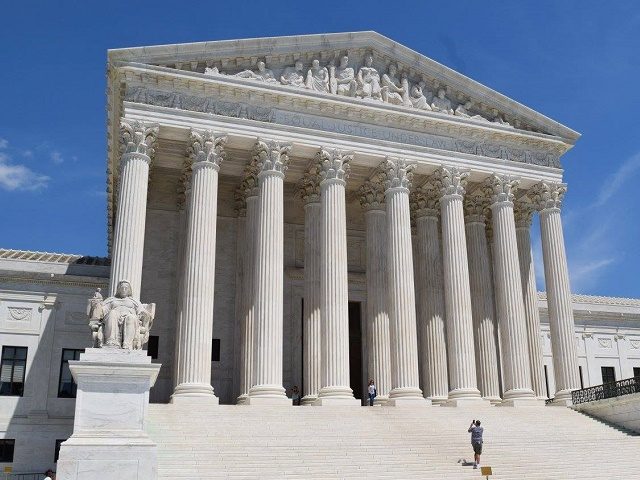Religious liberty lawyers petitioned the Supreme Court of the United States on Thursday to resolve a rare en banc circuit split and decide whether the First Amendment prohibits elected officials from leading prayers before their legislative sessions.
The U.S. Courts of Appeal for both the Fourth and Sixth Circuits have each examined the issue recently en banc, meaning with all the judges of the court instead of the more usual panel of three judges. The two courts reached opposite conclusions, with the Fourth Circuit holding that the First Amendment’s Establishment Clause bars elected official leading prayers and the Sixth Circuit holding that it does not, creating a “circuit split.” The coalition of lawyers who assisted the local governments defending the constitutionality of their elected officials’ prayers is now asking the Supreme Court to resolve that split in Rowan County v. Lund.
“Opening government meetings with prayer is a centuries-old tradition that goes back to before the founding of our nation and continues to this day before Congress, statehouses, and thousands of local governments across the country,” Ken Klukowski, senior counsel for First Liberty Institute, which is representing Rowan County in the litigation, said in a press release accompanying the petition’s filing. Klukowski is better known to Breitbart News’ readers as a legal editor here.
The Supreme Court already ruled, in 2014’s Town of Greece v. Galloway, that, consistent with practice going back to the earliest days of the republic when, only months after ratifying the First Amendment, the Senate and House appointed chaplains to lead the bodies in prayer, there is no blanket prohibition on prayer in government. Prayers, even of a sectarian nature, delivered by a chaplain, do not run afoul of the Establishment Clause when clearly delineated from the business of the government body and not part of a pattern of deliberate discrimination.
First Liberty’s petition argues that “[l]egislator-led prayer indeed extends back to the Founding and forward to the modern day” and that:
What matters under Town of Greece is whether a particular practice fits within the Nation’s history and traditions — and the Fourth Circuit’s own historical analysis confirms that lawmaker-led prayer does — regardless of whether another prayer practice happens to be more common.
The Sixth Circuit, in Bormuth v. County of Jackson, earlier this year, agreed with First Liberty’s premise that the Supreme Court’s approval of prayer extended to elected officials themselves and permitted the members of a county board of commissioners, in Michigan, to deliver a religious invocation, as had been done in local government bodies for over a century, before the board sat down to business. First Liberty Institute was also involved in that litigation and eventually secured a victory before the Sixth Circuit sitting en banc.
The Fourth Circuit, however, disagreed, ruling the tradition of a North Carolina county amounted to establishing a religion — Christianity — in that county. As the majority opinion, written by Judge J. Harvie Wilkinson III, characterized it:
They rotated the prayer opportunity amongst themselves; no one else was permitted to offer an invocation. The prayers referenced one and only one faith and veered from time to time into overt proselytization. Before each invocation, attendees were requested to rise and often asked to pray with the commissioners.
The crux of the Fourth Circuit’s holding is that, unlike the chaplain delivered invocation to which the Supreme Court gave its blessing, having only the commissioners themselves, all Christian, deliver the prayer “served to identify the government with Christianity and risked conveying to citizens of minority faiths a message of exclusion.”
The two appeals court decisions are at clear loggerheads, with the dissenters in each case approvingly citing the majority in the opposite court and vice versa.
While the Supreme Court grants only a small minority of petitions for certiorari, which is the name of the mechanism for asking the high court to decide a matter, the clear circuit split and the fact that en banc panels of two of the nation’s appellate courts have already weighed in on the matter create a rare situation where the grant of such a petition appears likely. Should four or more justices agree to take up the petition in Rowan County v. Lund, it could be argued at the Supreme Court later this term, which began last week.

COMMENTS
Please let us know if you're having issues with commenting.